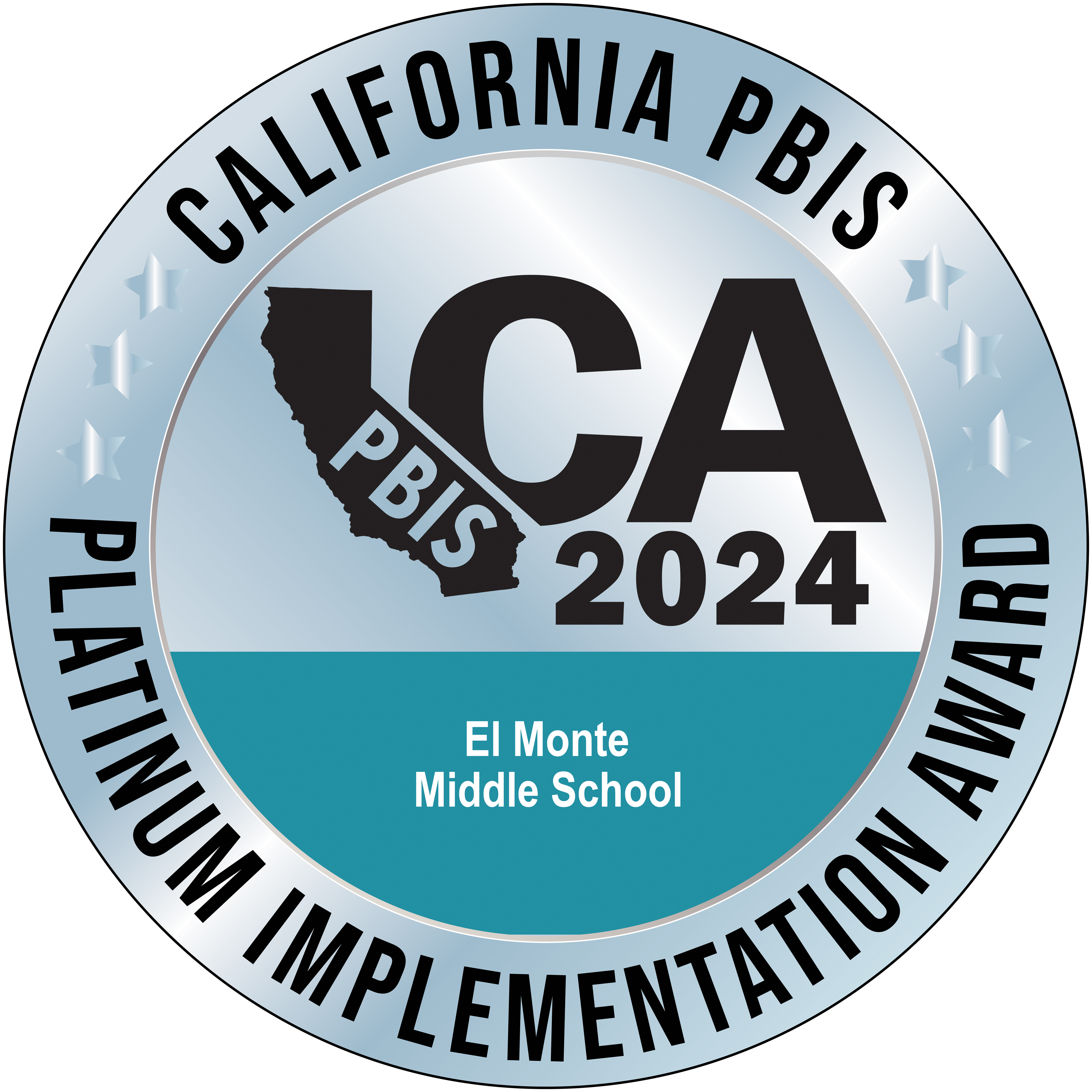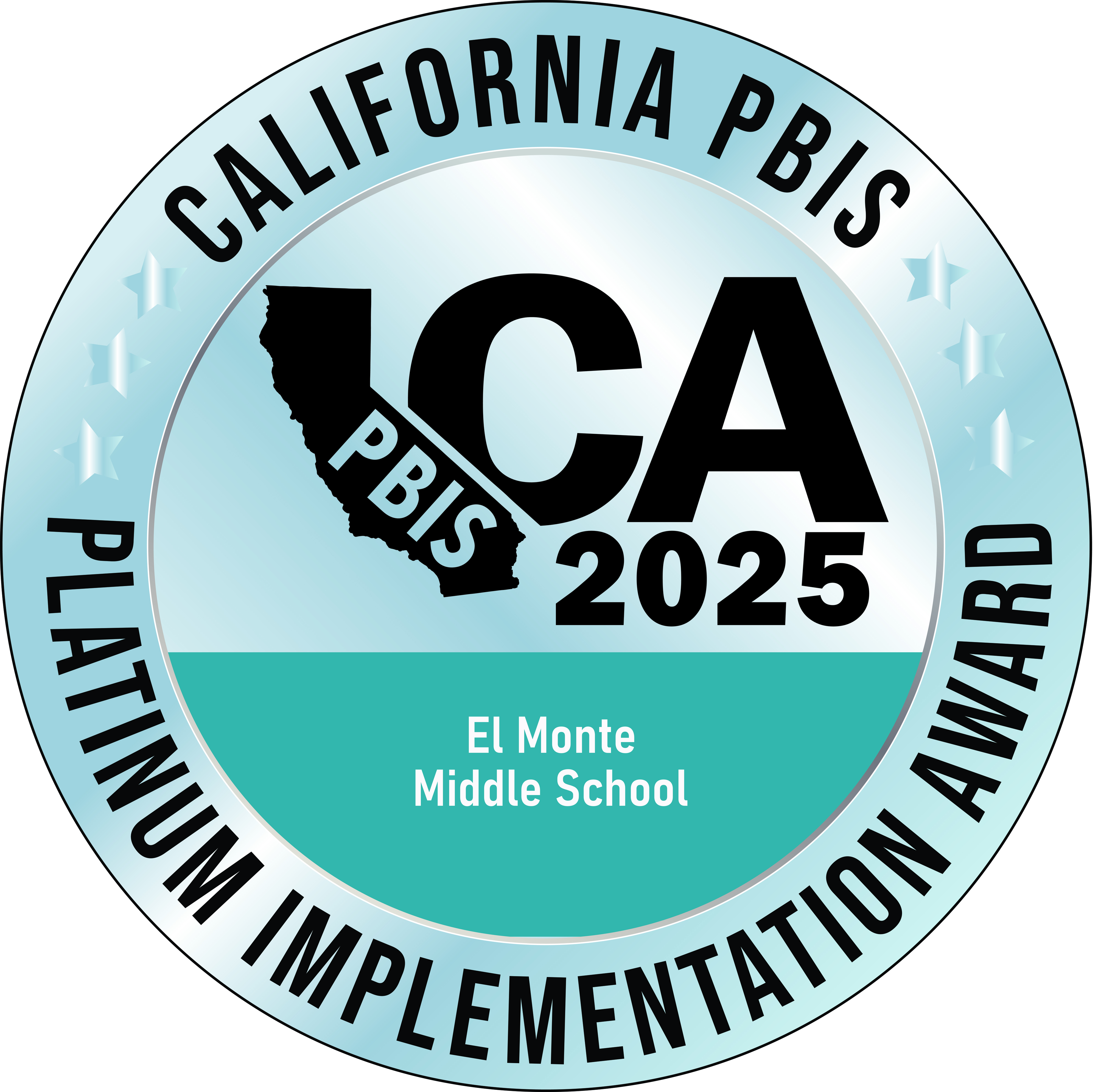
Positive Behavior Intervention and Supports (P.B.I.S)
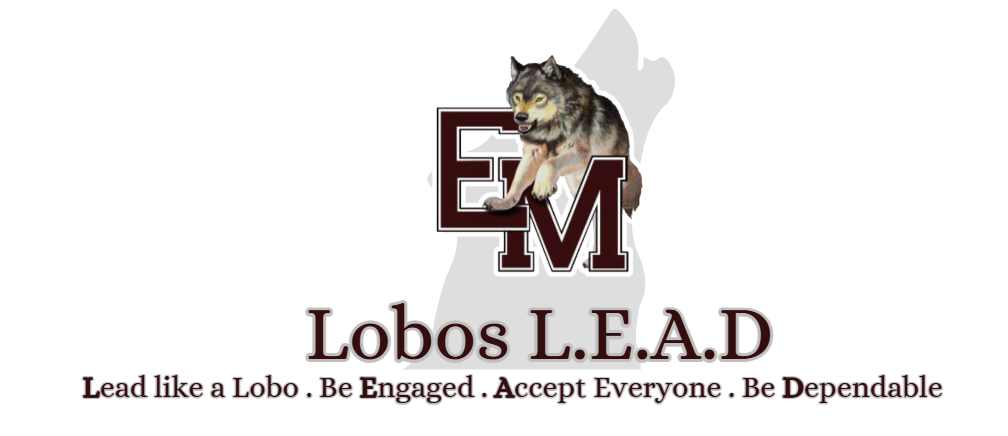
Lead like a Lobo . Be Engaged . Accept Everyone . Be Dependable
Middle school is a critical stage of development, marked by rapid growth, self-discovery, and change. At our site, Positive Behavioral Interventions and Supports (PBIS) provides the framework that helps students navigate this period with confidence and curiosity while feeling supported every step of the way. Through PBIS, students are given the structure, encouragement, and opportunities they need to develop healthy habits, build strong relationships, and thrive in a school environment that is safe, positive, and nurturing.
Guided by our core values of LOBOS LEAD—Lead like a Lobo, Be Engaged, Accept Everyone, and Be Dependable—we commit to ensuring that every student grows academically, socially, and emotionally. Our work is intentionally data-driven and system-focused, allowing us to consistently align expectations, supports, and services to meet the needs of the whole child. This ensures that students experience both accountability and care while they explore who they are and who they are becoming.
Equally important are the positive and genuine connections our staff make with students each day. At the middle school level, relationships are at the heart of PBIS, creating a foundation of trust and belonging that empowers students to take risks, learn from challenges, and discover their strengths.
Our tiered framework ensures that every student has access to the right level of support:
Tier 1 (Universal Supports): Schoolwide expectations rooted in LOBOS LEAD, proactive classroom management, positive reinforcement, community-building activities, and opportunities for engagement and recognition.
Tier 2 (Targeted Supports): Small group interventions that focus on social-emotional skills, mentoring, attendance supports, and check-in/check-out systems for students needing additional guidance.
Tier 3 (Intensive Supports): Individualized interventions, wraparound services, and strong collaboration with families and community partners to meet the needs of students requiring the highest level of support.
Aligned Supports and Services
Our PBIS framework is strengthened by a collaborative and multidisciplinary team dedicated to supporting student growth from every angle—from the moment students arrive in the morning until the last bell in the afternoon:
Administration & Front Office Staff – Ensure smooth daily operations, provide guidance, and coordinate supports so that teachers and students can focus on learning and growth.
Counselor – Provides academic planning, social-emotional guidance, and conflict resolution support.
Parent-Student Advocate – Builds strong family-school partnerships and encourages active parent involvement.
Community Coordinator – Focuses on family and parent support by strengthening home-school connections and linking families to community resources.
Social Workers – Provide crisis response and student-centered support while addressing barriers to learning and emotional well-being in the home and school.
School Psychologist – Offers expertise in assessment, mental health, and individualized support planning.
Dedicated Teachers – Model LOBOS LEAD values daily, create engaging classroom environments, and support students’ academic and personal development.
Maintenance Staff – Prepare and maintain a safe, welcoming environment for learning each morning.
Afterschool Staff – Extend support beyond the school day, providing enrichment, supervision, and continued guidance to students.
Together, this whole-school team—administrators, educators, support staff, and operations personnel—ensures that PBIS is not just a program, but a lived experience that guides every interaction, supports every student, and fosters a positive, safe, and inclusive school community.
At our middle school, PBIS ensures that this vital stage of growth, learning, and self-discovery takes place in an environment that is safe, structured, and supportive. With clear expectations, caring relationships, and strong systems in place, we prepare students to LEAD like Lobos—Engaged, Accepting, and Dependable—today and into the future.
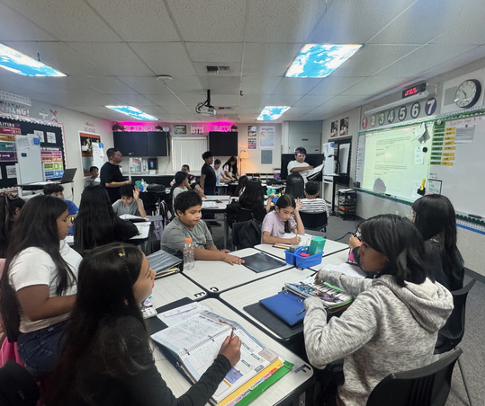
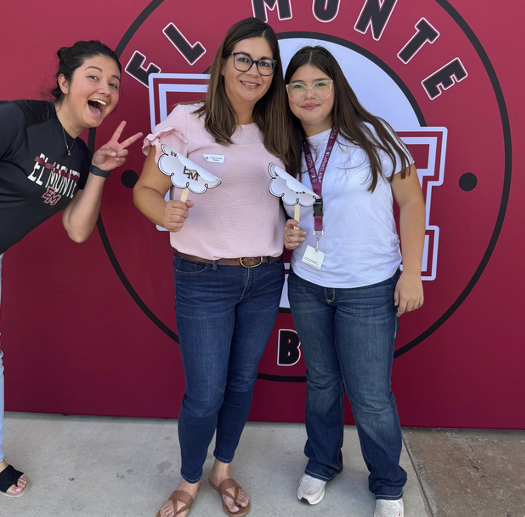
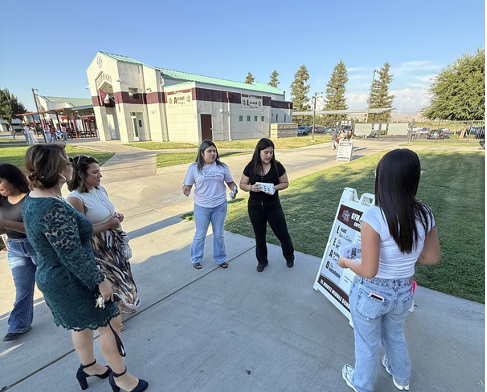

DATA DRIVEN DECISION MAKING THAT SUPPORTS STUDENT LEARNING
ATTENDANCE
BEHAVIOR
SOCIAL-EMOTIONAL
District Goal: 96%
Data as of February 25th at 2:09pm
6th Grade Attendance Percentage: 95.86%
7th Grade Attendance Percentage: 95.77%
8th Grade Attendance Percentage: 95.62%
Overall Site Attendance Percentage: 95.75%
Site Goal: By the end of the 2025–2026 school year, El Monte Middle School will reduce chronic absenteeism by 5% in comparison to last year's data of 10.85% by implementing targeted interventions, including SART meetings, home visits, attendance focus groups, and short- and long-term counseling supports. Progress will be monitored monthly through attendance data and reviewed in staff meetings to ensure accountability and timely adjustments.
California State PBIS Platinum Recognition Goal: 80% or more students with 0-1 major referral
Data as of February 25th at 2:10pm
Percentage of 0-1 Referrals: 98.14%
Site Goal: El Monte Middle School will reduce student suspensions by 15% compared to the 2024–2025 school year by June 2026 through the implementation of tiered behavior interventions, restorative practices, targeted social-emotional learning supports, and administrative use of Other Means of Correction (OMC). Progress will be monitored monthly, with strategies adjusted based on data, to ensure school-wide consistency and alignment with PBIS, Lobos Lead, and established school-wide practices.
Social Emotional Wellness is supported with:
Site Goal: By June 2026, El Monte Middle School will increase the percentage of students who report feeling safe at school on the California Healthy Kids Survey (CHKS-6th and 7th grade data only) by 15% in comparison to last year's data. This will be achieved by consistently implementing PBIS strategies, reinforcing Lobos Lead expectations, and strengthening schoolwide practices such as positive recognition systems, restorative practices, and staff-student relationship building.
HOW WE ARE SUPPORTING OUR GOALS AND HOW YOU CAN HELP
Attendance at school is supported with:
Student Attendance Challenges
Automatic and personal phone calls
Home visits
Attendance Focus groups
Mentoring
School Attendance Review Team Meetings (SART) to support parent partnerships
Letters of notification addressing attendance status
School Attendance Review board Panel Meetings
Behavior at school is supported with:
Whole school Reinforcement system on positive behavior expectations (Lead like a Lobo, Be Engaged, Accept Everyone, Be Dependable)
PBIS lessons on behavior expectations across campus
Parent expectation Tours
Second Step curriculum
Mentoring
Other means of correction
Small groups to build skill development
Individual student conferences
Student Study Team meetings
Behavior Contracts
Minor and Major Referrals
Parent conferences
Social Emotional Wellness is supported with:
Universal screener with Dessa
School wide activities to bring awareness
Mentoring
Small groups to build skill development
Class presentations
Individual student conferences
Crisis team response
PPS credentialed staff
Here is how you can help at home:
Make sure students keep a regular bedtime
Lay out clothes the night before.
Establish a morning routine.
Ensure students go to school every day unless they are truly sick (e.g. child has a fever, is throwing up or has diarrhea versus a minor stomachache or runny nose.)
Avoid scheduling vacations or doctor’s appointments when school is in session.
Talk to school staff for advice if students feel anxious about going to school.
Develop back-up plans for getting students to school if something comes up.
Call on a family member, neighbor, or another parent to take your child to school.
Join our PBIS Team
Here is how you can help at home:
Maintain regular communication with school staff
Establish consistent daily routines and organized study space
Discuss choices, consequences, and model accountability
Practice decision-making and pause-and-think strategies
Focus on effort and celebrate individual progress
Help identify trusted adults and support systems
Know our systems of support and discipline process
Join our PBIS Team
Here is how you can help at home:
Create regular one-on-one time for open conversations
Model healthy emotional expression and coping strategies
Validate feelings while guiding appropriate responses
Encourage healthy friendships and social connections
Practice gratitude and mindfulness activities together
Keep communication with staff on students wellness
Ask how you can partner with us to make a difference on campus or at home
Join our PBIS Team
Resources

